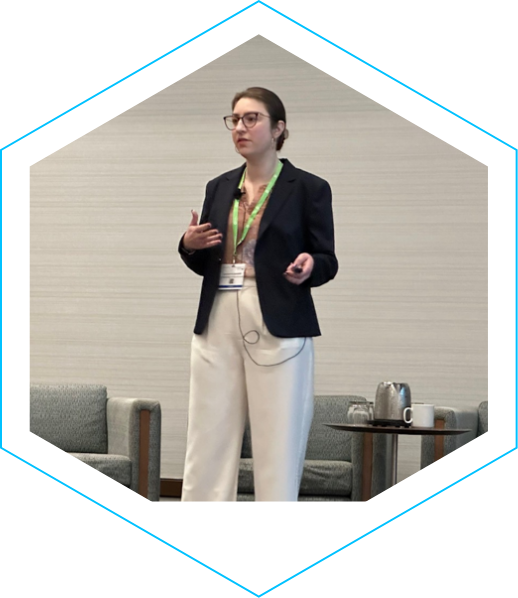
Physical Organic Chemistry Concepts for Process Scale-Up
Event overview
The scientific principles related to the optimisation of chemical processes so that they can be transferred from the laboratory to plant scale with minimal risk is an often underappreciated aspect of process development chemistry. Relevant physical organic chemistry principles are not widely taught in standard academic chemistry courses and are generally gained with experience – either through knowledge transfer within companies or through trial and error after mistakes have been made.
Based on the work of Prof John Atherton, this course provides an introduction to some of the key physical organic chemistry principles that underpin chemical process development as well as the requirement for inter-disciplinary cooperation i.e. process development chemists, chemical engineers, analytical chemists etc. The theoretical concepts are supplemented with numerous examples to demonstrate different aspects of the relevant single- and multi-phase physicochemical science, exploring the potential impact of various phenomena on yield, selectivity and reaction rate.
Dates and timings are below:
Monday, September 9 | 2.00pm – 5.00pm BST
Tuesday, September 10 | 2.00pm – 5.00pm BST
Wednesday, September 11 | 2.00pm – 5.00pm BST
Ran in conjunction with

Course outline
Session 1
Module 1: Course Introduction What do we mean by whole process design:
Introduction of the course tutors, an overview of the course and the expected course outcomes. An overview of the concept of whole process design will be presented, with a focus on data requirements for whole process optimisation and the use of conceptual process models to define data collection needs and interpret data gathered.
Module 2: Reaction Kinetics and Reaction Profiles:
A re-cap on reaction kinetics and the importance of their application towards process development is presented. Reaction profiles and their importance in interpreting and understanding the kinetics of different process strategies will be introduced, along with guidelines for collecting relevant data as part of routine development.
Module 3: Pre-reaction Equilibria:
This module will explore common equilibrium in reactive species (e.g. protonation/deprotonation) and the potential effect these equilibria can have on reaction rates, selectivity and work-up.
Session 2
Module 4: Competing Reactions:
Identifying potential competing reactions is key to the optimisation of yield/selectivity. Factors affecting selectivity and approaches to favour the desired chemistry over undesired competing reactions are discussed.
Module 5: Heterogeneous equilibria:
Many reactions and almost all work-up processes involve more than one phase. Simple partitioning and partitioning coupled to ionisation processes in one phase are presented. An introduction to three phase (ternary) equilibria will be provided.
Module 6: Mixing Effects in Pseudo-Homogeneous Systems:
An introduction to mixing effects in single-phase systems is presented, with an overview of mixing sensitivity, its impact on selectivity, and simple tests to identify and characterise potential sensitivity.
Session 3
Module 7: Mixing in Multi-Phase Systems:
This module extends the consideration of mixing effects on rate and selectivity to multi-phase systems. It considers phase continuity and phase inversion in liquid-liquid systems as well as issues around solids suspension and gas dispersion in agitated vessels.
Module 8: Reaction and Mass Transfer in Multi-Phase Systems:
Reaction kinetics and selectivity in multi-phase systems can differ considerably from those observed in single-phase systems. This module provides an introduction into the fundamental science behind coupled mass transfer and reaction rate processes.
Module 9: Relevance of Physical Organic Chemistry Concepts to Scale-up:
This module will consider the application of the previous modules to assist in reducing the technical risks associated with scale-up, based on review of common scale-up issues and how appropriate understanding of the underlying physical organic chemistry can aid scale-up risk mitigation.
Who Should Attend
Developed for on-line delivery, the course is targeted at organic chemists working in the fine chemical, agrochemical and pharmaceutical sectors and will be of benefit to laboratory process development chemists, laboratory managers and group leaders involved in technology transfer and process scale-up.
What's Included
The course fee includes:
- Link to watch all four live sessions
- Electronic version of the course manual*
- Course certificate
For this on line course, there will be no recordings available and *the e reader manual is NOT printable or downloadable (due to copyright). If you prefer a hard copy of the manual you will have the opportunity of purchasing a professionally printed hard copy during the booking process.
Registration
Prefer a booking form?
Download our booking form and return it to us by email.
Download Booking FormPhysical Organic Chemistry Concepts for Process Scale-Up
Fee info
| E-Reader: | Included |
| Printed Copy: | £90.00 + P&P |
It was good. Never visited a Scientific Update conference, but will get it on my priority list. Very good – like the set-up, flow and topics. Very interested in process development.
Organic Process Research & Development Conference Delegate 2023
Thank you for the excellent conference. I enjoyed the scientific content and the networking opportunities. I will definitely recommend this conference to my colleagues.
The Formulation and Drug Delivery Congress Delegate
Become a speaker at one of our events
Share your expertise with a global audience of industry professionals. Scientific Update is continually seeking thought leaders and industry innovators to speak at our renowned conferences and training courses.








